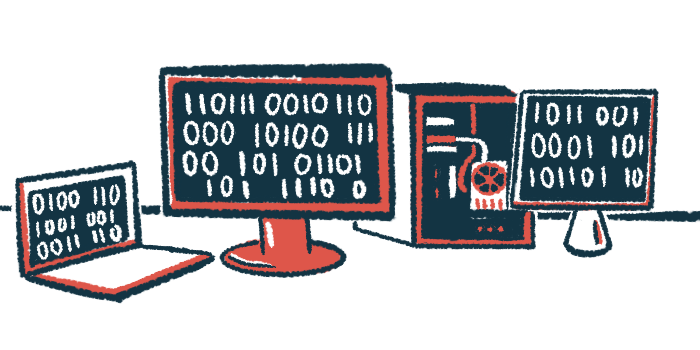Phase 1 trial of prosetin to create digital twins of ALS patients
Virtual counterparts to serve as placebo group, speeding data collection
Written by |

ProJenX has teamed up with Unlearn, a company that specializes in artificial intelligence (AI), to create virtual twins of patients as a way of more quickly collecting data in a Phase 1 clinical trial of prosetin, its oral treatment candidate for amyotrophic lateral sclerosis (ALS).
“Digital twins provide the opportunity for us to compare participants with ALS who are dosed with prosetin to their digitally generated placebo versions of themselves,” Stan Abel, president and CEO of ProJenX, said in a company press release. The strategy, he added, is expected to “support a more efficient and data-driven clinical development program.”
The four-part PRO-101 (NCT05279755) study is looking into the safety and tolerability of prosetin, and how it moves into, through, and out of the body (that is, its pharmacokinetics) in up to 32 healthy adults and adults with ALS. Prosetin’s pharmacodynamics, or how well it works, will be evaluated in patients.
Study parts A and B are complete, having found prosetin against a placebo to be safe and well tolerated in healthy volunteers at single or multiple ascending doses. The trial now is moving into part C, where oral prosetin will be tested against a placebo in ALS patients, supported by a $1 million grant from the ALS Association.
Digital patients will be placebo group of trial’s open-label extension
Patients who complete part C — running up to 56 days (about two months), including 14 days of daily oral solution treatment or a placebo solution, and seven hospital visits — will be invited to enter part D. In this open-label extension phase, all will be given prosetin for 52 weeks (about one year), ProJenX reports on a PRO-101 trial webpage.
The digital twins will serve as a placebo group during part D’s long-term extension.
Unlearn will use its ALS Digital Twin Generator, an AI-based model that’s been trained on patient-level data, to generate digital twins. These counterparts of treated patients will act as a trial placebo group, allowing researchers to compare how prosetin works against expected changes in a patient’s health without the medication.
“ProJenX and Unlearn’s collaboration aims to extract valuable insights that will help us expedite clinical trials and more efficiently evaluate prosetin in individuals living with ALS,” Abel said.
“ProJenX is making significant strides in this area, and we are confident that our collaboration will continue to support their efforts to develop impactful therapies that improve the lives of patients everywhere,” added Steve Herne, CEO of Unlearn.
Prosetin aims to protect neurons under stress conditions in the brain
In ALS, misfolded proteins build in motor neurons, the nerve cells that control voluntary movement, stressing the endoplasmic reticulum. This is a series of sacs where proteins are folded into their correct shape, while misfolded proteins are sorted for recycling. Motor neurons die, however, as the endoplasmic reticulum becomes overloaded.
Prosetin is a brain-penetrant molecule designed to inhibit a protein called MAP4K in the brain. In preclinical studies, MAP4K inhibitors were found to reduce inflammation and promote motor neuron survival in conditions of stress to the endoplasmic reticulum. A treatment goal is to ease ALS symptoms.
The AI-based model will draw on data collected from patients at trial entry to forecast outcomes for their virtual twins. It will focus on how ALS affects the ability to do everyday tasks, lung function, and blood levels of neurofilament light, a marker of damage to nerve cells.





